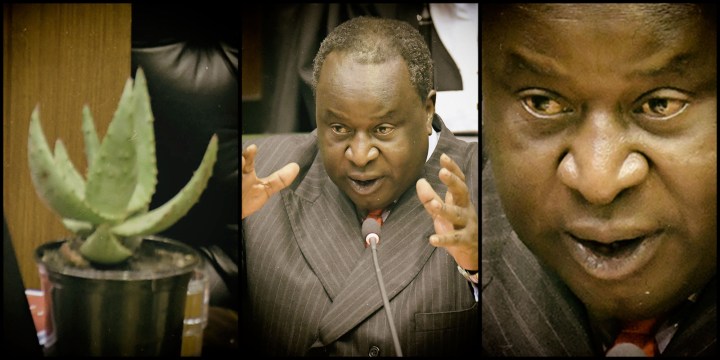#BUDGET2020
Some key things to look out for in Mboweni’s ‘do or die’ Budget

Finance Minister Tito Mboweni unveils his Budget on Wednesday 26 February for the 2020/21 financial year. Here are some key things to stay tuned for.
Debt/deficit levels: These forecasts are absolutely key, and in recent years they have generally exceeded the initial prediction. Mboweni will need a firm hand on the tiller to keep them from running away. The budget deficit and the overall debt levels are the main numbers, expressed as a percentage of gross domestic product (GDP). The budget deficit for 2020/21 is generally seen coming in at around 6.8% of GDP, give or take a few percentage points, well above the globally accepted figure of 3%. The overall debt ratio is seen at around 68% of GDP and then going north of 70% over the next couple of years.
GDP growth forecasts: These will be woeful and make the debt levels harder to contain. Slower GDP growth means a smaller GDP figure when compared with debt, so the latter as a percentage of GDP is higher. Slower growth, no growth or a contracting economy mean less revenue flowing to the Treasury. In the Medium Term Budget Policy Statement (MTBPS), growth for 2020 and 2021 was put at 1.2% and 1.6%. A slew of institutions including the IMF and rating agency Moody’s have since slashed their forecasts to below 1%, and expect the Treasury to do the same in the face of almost perpetual load shedding for the next 18 months. The 2020 forecast figure almost certainly will not exceed 1%, and if it does, it will cast doubt on the credibility of Treasury’s number crunchers.
Public sector wage bill: The MTBPS said the following on this crucial issue:
“Growth in the public-service wage bill needs to decline to reduce the pressure on goods and services and infrastructure. The wage bill accounts for 46% of tax revenue in 2019/20, primarily because of above-inflation increases in average remuneration over the past decade.” There will be cuts pencilled in, but the jury is out on the size and extent of them.
Taxes: The MTBPS hinted that not a lot would be done on the tax front, but something is likely to be in the offing:
“Significant tax increases over the past several years leave only moderate scope to boost tax revenue at this time. Given the size of the required adjustment, however, additional tax measures are under consideration.” A number of economists have forecast another 1% rise in VAT, but that is politically difficult. “Sin taxes” on booze and tobacco are always easy to get through and so a hike here is to be expected. The top tax income rate is also a possible, and easy, target.
SOEs: Expectations here are high and probably won’t be matched. Any blueprint on the proposed rival to Eskom will be welcome, including how much private-sector participation is envisioned, and timelines on when it might start producing power. Selling the state’s remaining stake in Telkom is a possibility, and other equity sales may also be put on the table. On Eskom, no fireworks are expected on its mountain of debt. Mboweni would like to clip SAA’s wings and anything he has to say on that score will clearly be of interest.
Sovereign wealth fund: Details on the SWF, floated by President Cyril Ramaphosa in his SONA earlier in February, are anticipated. Minerals and Energy Minister Gwede Mantashe has since said that an SWF could be funded from mining royalties. Precious metals producers, in particular, have been posting bumper profits because of surging prices and presumably they are paying bigger royalties and taxes as a result. Still, ring-fencing such revenues for an SWF will be unprecedented and will divert money from other parts of the Budget. And there are entirely legitimate concerns about the potential for corruption posed by an SWF, given the ANC’s history in matters pertaining to state revenue and administration. Welcome details would include a qualified board and executive team that is completely independent, but that is probably a pipe dream.
State bank: Then there is the state bank, which also figured in Ramaphosa’s SONA. Mboweni recently tweeted that “…a State Bank will be established as a deposit-taking institution. Details in the Budget speech”. It will be interesting to see where the seed capital will come for such a bank and what possible justification will be given for its role. BM



















 Become an Insider
Become an Insider